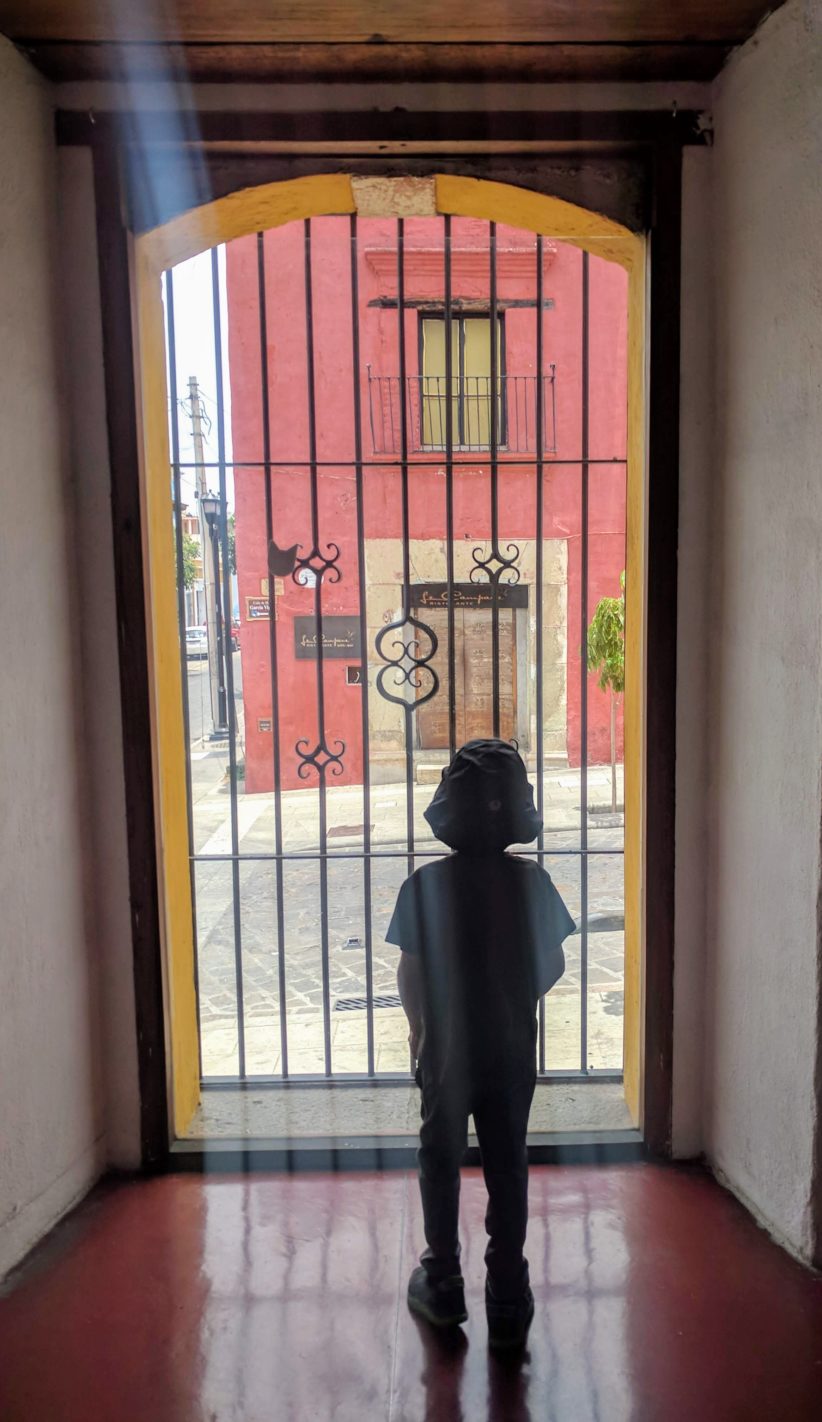I recently had the pleasure of a prospective, completely non-randomized and uncontrolled follow-up on a friend from my days in Boston, and it was a joy to discover the unusual path he's taken. It went down like this:
I reached out to an old friend from residency who'd disappeared off the face of the earth for a decade since attending our wedding. This was a Southerner from Georgia with a military service history who had first entered academic EM and then left it for community hospital work. He'd had a million kids, and we'd lost touch with his many moves.
I tracked down his contact info from a mutual friend, called him up, and that very weekend he was moving his oldest daughter into MIT. I'd last seen her as a toddler in a carrier on his back while we were hiking through the Pacific Palisades during residency.
Turns out he'd left his partnership and hadn't worked a night shift in two years. He was living a simple but satisfying life in a country house with acreage in the Carolinas, and asked me if I'd heard of this "Physician on Fire" guy. We had a wonderful time reacquainting ourselves and talking through the various twists that had led us to our current parallel paths.
Like power tools Mr. Manly Man? Personal Capital has a free retirement planner, investment checkup and fee analyzer. Thanks for using the affiliate link below, tough guy.

This post is not about that talk. While chatting, he mentioned he was staying in an old college friend's house who was away in Norway with his family for a sabbatical year. The same friend, it turns out, he'd introduced me to when he heard I was leaving for Boston many years ago.
Said friend, whom I'll call W, is the object of the story. He's a US born computer programmer of Chinese descent with an insatiable curiosity about the world. He'd met his Norwegian wife while wandering small towns and fjords during a few months of continuous travel off the beaten track.
Since the time I last saw W, he'd become a Chief Technical Officer of a software firm, but felt a little restless and complacent. He'd been watching this TED Talk about redistributing retirement years (not an unknown concept in the FIRE world) and sprinkling sabbaticals in during your working career, at your productive prime, to replenish creativity.
The TED Talk, by an Austrian-born, New York City based designer, was entitled, "The Power Of Time Off." It's worth 18 minutes of your life. The idea became irresistible to W.
After pondering a sabbatical for a few years, W and his wife decide to pursue it. Ever a romantic, he saw a beautiful photo of a remote island in Norway. Just off the Arctic Circle, with a year-round population of 180 people. While there, he spent a lot of time with his young kids while his wife, a teacher, worked at the local school.
The balance of the time, during the long Norwegian winter, he started to code without distraction. Fooling around with an idea he'd had, he wrote an iphone application that reads text out loud, and put it up for sale on the Apple Store.
The app started to sell slowly, but through word of mouth, it began to snowball in popularity, reaching populations he never dreamed of helping. Blind communities. Dyslexic students who now use the app to read and take their math tests. His creative, self-motivated work became the basis for a company, and the income it generated becomes enough to sustain his family.
Take home point: As physicians, we are employable in many places, and if willing to consider flexible careers (locums positions, for example, have been a huge win for Dr. Nii Darko, a trauma surgeon) have the ability to build periodic sabbaticals into the fabric of a medical career.
Strategically deploying sabbaticals during one's prime might replenish and extend a career over the long run. Just because nobody else is doing it doesn't mean it can't or shouldn't be done.


Comments 12
That’s some story, Doc. A craving for time off, natural beauty, and a peaceful place to frolic with his kids yielded unfathomable and totally unplanned results for W. What a win! Often times the universe rewards people who take real action to better their lives.
Author
It’s incredibly gratifying when a curious mind unafraid to deviate from a secure path accomplishes something both unintended and amazing. I think of it as the power of the digression – letting your mind wander to where the magic lies. Imagination unleashed is a powerful thing. I’m sounding like a motivational poster in a dead end office cubicle, so I’ll stop now.
Why is it about money? Why is it not about creation? I spent the past 12 years affiliated with a company down in Austin that has been developing an esoteric product called software defined radio. Prior to medicine I was an electrical engineer with an interest in communications technology and design. So this affiliation gives me an outlet. My “job” is to try and break what they make, so they can fix it and iteratively make it better. I’m part of a team that mercilessly beats up the code till we get down to the brass tacks. I don’t get paid a nickle. I get the satisfaction of creation and re-creation and the satisfaction of working with brilliant people on an interesting problem. I’m familiar with that North Sea Island, (Utsira I believe is the Island of which you write) I’ve actually talked with some ham operators who live on that Island, with my Software Defined Radio, the one I helped create. I didn’t have to go to the North Sea I made the North Sea come to me. In the mean time I practiced medicine and ran my practice, built a money machine, raised and home schooled my children and generally had a blast. There is so much to do, experience and accomplish if you don’t make it all about money. It turns out exploratory behavior is linked in the hippocampus to learning, memory and therefore knowing. This unmasks when the other “needs” (food water shelter society) are satisfied and you can devote your attention to creativity. The neural circuitry exists to engage in creative knowing, or you can sit around, pick your nose and watch CNN.
Author
Gasem,
The beauty of this story was that my friend followed his curiosity, which led to creation and ultimately the money followed. Obviously this is not always the case, which is why aiming for early FI provides the luxury of following your passions and finding an outlet for them.
My friend’s island was Rodoy. I don’t think he’d mind my sharing his story since it’s already out in the press.
That’s a very cool way to channel your inner engineer – there’s a ton you learn when your job is to creatively break something and learn in the process.
-CD
I saw the beauty CD which is why I asked the question, to refocus on the creativity. I think it’s a great story
Check this out
https://www.reddit.com/r/oddlysatisfying/comments/9bj1ak/this_dog_wrapping_himself_in_a_blanket/?utm_source=reddit-android
That sounds so appealing taking a sabbatical. My big fear is that any extended time off makes you very rusty when you resume your clinical duties.
Sometimes after even just a week off on vacation, it takes a monumental effort to get back into the swing of things and that’s just dealing with workflow. That’s why I give a cautionary tale to those doctors who want to leave early. Once you are out, it is very hard to get back in especially if its years off even though you may still maintain your certifications.
Author
My wife is fond of telling female docs who take time out for maternity leave to always leave an oar in the water. In the ED, certain procedural skills require regular clinical practice to maintain. This was also a consideration when we were thinking about spending a year abroad as a family.
We compromised by making our summers aggressive travel time while the kids are in this window period, with the hope that such mini-sabbaticals would serve as inspiration.
Point well made, Xrayvsn.
Even within a specialty you may loose some chops when you leave that aspect of the biz. When I went full time SDSC at some point I felt I lost some of the skills needed to be completely on top of some complicated cases. There’s a difference between being on top and muddling through. It wouldn’t take much to get back on top but it’s definitely a process
Gasem, that’s one of the reasons I continue to do locums…especially in my sub-specialty, you want to be considered “current”.
After a few weeks away, the first time or two with a case feels a bit “unnatural”.
Sadly, medicine doesn’t have the opportunity to do what flying does…if you aren’t “current”, you can fly with an instructor who can watch over you while you regain your “currency”.
If we had that…we would be able to *safely* “go away” for a while. As it stands…we have to continue to practice at least part of the time.
Hey Crispy Doc,
Stumbled upon your blog from your post on Freedom is Groovy. We’re both handymen-in-the-making and on our way to financial freedom. Speaking of which, I like your idea of taking time off during your prime working years to recharge your creative juices.
Not everyone will invent a smartphone app and create a steady flow of income, but it might give you the ability to refocus and take another step in your career. Or it might open you up to new possibilities you would have passed up if caught in the endless work loop. Taking time for yourself is always important. Even if you can’t take a full sabbatical upon occasion, extended breaks are important for sanity and possibly your creativity.
Thanks for sharing!
Author
Young and the Invested,
Happy to welcome you here. While my friend’s success was a lark and by no means a guarantee, the guiding principle is sound. Just the time to follow your creative muses can be sufficient to let you approach your return to daily living with renewed vigor and appreciation, and that’s a position of strength. While I’m more of a handy tween than man, I’m happy to be part of that aspiring club.
Fondly,
CD